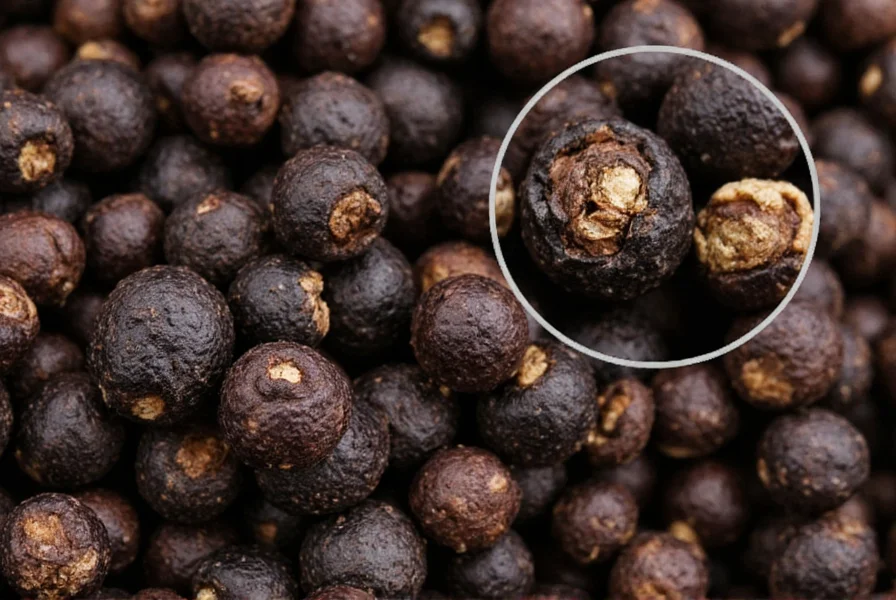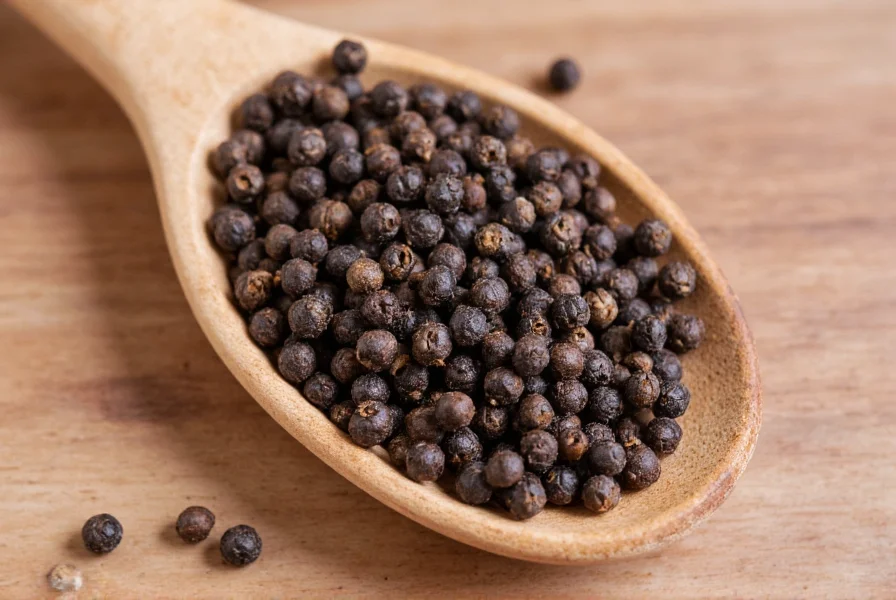For centuries, black pepper has been more than just a kitchen staple—it's been revered in traditional medicine systems worldwide. Modern science now confirms what ancient healers intuitively understood: this common spice delivers remarkable health advantages that extend far beyond flavor enhancement. Let's explore the evidence-based benefits that make black pepper a nutritional powerhouse.
The Science Behind Black Pepper's Potency
Black pepper's primary bioactive compound, piperine, constitutes approximately 4-6% of the spice by weight and serves as the foundation for most of its health advantages. This alkaloid gives black pepper its characteristic pungency while providing significant physiological effects. Unlike many plant compounds, piperine demonstrates impressive bioavailability, allowing it to exert effects throughout the body.
What makes piperine particularly remarkable is its ability to inhibit certain enzymes in the liver and intestines that break down medications and nutrients. This biochemical property explains why black pepper significantly enhances the absorption of various compounds—a benefit with profound implications for nutritional science and therapeutic applications.
Top Evidence-Based Advantages of Black Pepper
Enhanced Nutrient Bioavailability
Black pepper's most scientifically validated advantage is its ability to dramatically increase the absorption of nutrients. Studies demonstrate that adding just 20mg of piperine can boost curcumin absorption from turmeric by an astonishing 2,000%. This synergistic relationship explains why traditional Ayurvedic medicine often combines these spices. Beyond turmeric, research shows black pepper improves absorption of selenium, beta-carotene, and coenzyme Q10, making it a valuable addition to nutrient-dense meals.
Powerful Anti-Inflammatory Effects
Chronic inflammation underlies many modern diseases, and black pepper offers natural anti-inflammatory properties. Piperine inhibits key inflammatory pathways, including NF-kB and COX-2 enzymes, similar to some pharmaceutical approaches but without adverse side effects. A 2013 study published in Phytotherapy Research demonstrated that piperine reduced inflammatory markers in animal models by up to 50%, suggesting potential applications for managing inflammatory conditions.
| Health Benefit | Scientific Evidence | Recommended Daily Amount |
|---|---|---|
| Nutrient absorption enhancement | Multiple clinical studies showing 30-2000% increase depending on compound | 1/4-1/2 teaspoon with nutrient-dense meals |
| Anti-inflammatory effects | Animal studies showing 30-50% reduction in inflammatory markers | 1/4 teaspoon daily |
| Digestive support | Clinical observations of increased digestive enzyme production | Used with meals as needed |
Digestive System Support
Black pepper stimulates the production of hydrochloric acid in the stomach, which is essential for proper protein digestion and nutrient absorption. This makes it particularly beneficial for individuals with age-related or stress-induced reduction in stomach acid. Traditional medicine systems have long used black pepper to alleviate digestive discomfort, and modern research supports these applications. The spice also demonstrates prebiotic properties, potentially supporting beneficial gut bacteria.

Antioxidant Protection
Black pepper contains significant antioxidant compounds beyond piperine, including various phenolic compounds. These antioxidants combat oxidative stress by neutralizing free radicals, potentially reducing cellular damage associated with aging and chronic diseases. Research published in the Journal of Agricultural and Food Chemistry identified black pepper as having higher antioxidant capacity than many common spices, with ORAC (Oxygen Radical Absorbance Capacity) values exceeding 10,000 μmol TE/100g.
Cognitive Function Support
Emerging research suggests piperine may support brain health through multiple mechanisms. Studies indicate it may inhibit the enzyme that breaks down neurotransmitters like serotonin and dopamine, potentially improving mood and cognitive function. Animal research shows piperine may protect against neurodegenerative conditions by reducing oxidative stress in brain tissue. While human studies are still limited, these preliminary findings suggest promising cognitive advantages of regular black pepper consumption.
Maximizing Black Pepper's Advantages in Daily Life
To fully leverage the health advantages of black pepper, proper usage matters. Freshly ground pepper delivers significantly more piperine than pre-ground versions, as the compound degrades when exposed to air. For maximum benefit when using turmeric, combine 1/4 teaspoon of freshly ground black pepper with each teaspoon of turmeric.
Storage is equally important—keep black peppercorns in an airtight container away from light and heat to preserve piperine content. Whole peppercorns maintain potency for up to three years, while ground pepper loses effectiveness within months. For therapeutic benefits, nutrition experts recommend 1/4 to 1/2 teaspoon of freshly ground black pepper daily, incorporated into meals rather than taken as a supplement.

Considerations and Balance
While black pepper offers numerous advantages, moderation remains key. Excessive consumption (more than 1-2 teaspoons daily) may cause gastrointestinal discomfort in sensitive individuals. Those taking certain medications, particularly blood thinners or antidepressants, should consult healthcare providers before significantly increasing black pepper intake, as piperine can affect drug metabolism.
Pregnant women should consume black pepper in typical culinary amounts rather than therapeutic doses, as high concentrations of piperine haven't been thoroughly studied in pregnancy. The advantages of black pepper are best realized as part of a varied, whole-food diet rather than as an isolated supplement.
Conclusion: A Spice Worth Its Weight in Health
Black pepper's advantages extend far beyond its role as a flavor enhancer. With scientifically validated benefits for nutrient absorption, inflammation reduction, digestive health, and antioxidant protection, this ancient spice deserves recognition as a functional food. By understanding how to properly select, store, and incorporate black pepper into your diet, you can harness these advantages to support overall wellness. As research continues to uncover new applications for piperine, black pepper's status as both a culinary essential and health-promoting agent remains firmly established.
Frequently Asked Questions
How much black pepper should I consume daily for health benefits?
For general health benefits, 1/4 to 1/2 teaspoon of freshly ground black pepper daily is sufficient. When combining with turmeric for enhanced absorption, use approximately 1/4 teaspoon of black pepper for each teaspoon of turmeric. Consuming black pepper as part of meals rather than in isolated doses provides optimal benefits without potential digestive discomfort.
Can black pepper really enhance turmeric absorption?
Yes, research confirms that piperine in black pepper increases curcumin (the active compound in turmeric) absorption by up to 2,000%. A landmark study published in Planta Medica demonstrated that adding just 20mg of piperine to curcumin significantly increased bioavailability. This is why traditional medicine systems often combine these spices, and why modern supplements frequently include black pepper extract.
Does the type of black pepper affect its health advantages?
Yes, the variety and freshness significantly impact black pepper's health advantages. Tellicherry peppercorns, harvested when fully ripe, contain higher piperine levels than smaller varieties. Freshly ground pepper provides substantially more piperine than pre-ground versions, which lose potency through oxidation. Whole peppercorns stored properly maintain effectiveness for up to three years, while ground pepper degrades within months.
Are there any potential side effects of consuming black pepper regularly?
When consumed in typical culinary amounts (up to 1/2 teaspoon daily), black pepper is safe for most people. However, excessive consumption may cause gastrointestinal irritation in sensitive individuals. Those taking certain medications should exercise caution, as piperine can affect how the body metabolizes drugs including blood thinners, antidepressants, and some chemotherapy medications. Consult your healthcare provider if you have specific health concerns.











 浙公网安备
33010002000092号
浙公网安备
33010002000092号 浙B2-20120091-4
浙B2-20120091-4